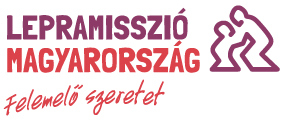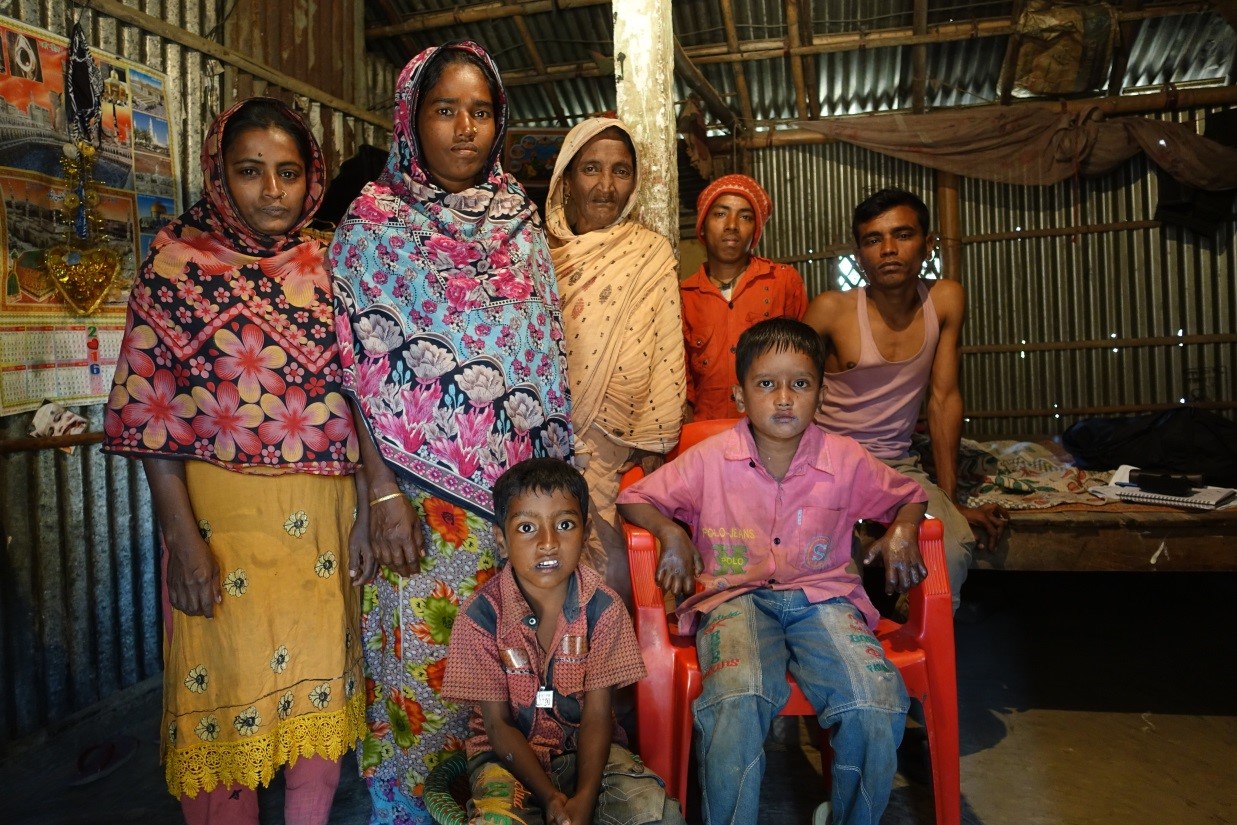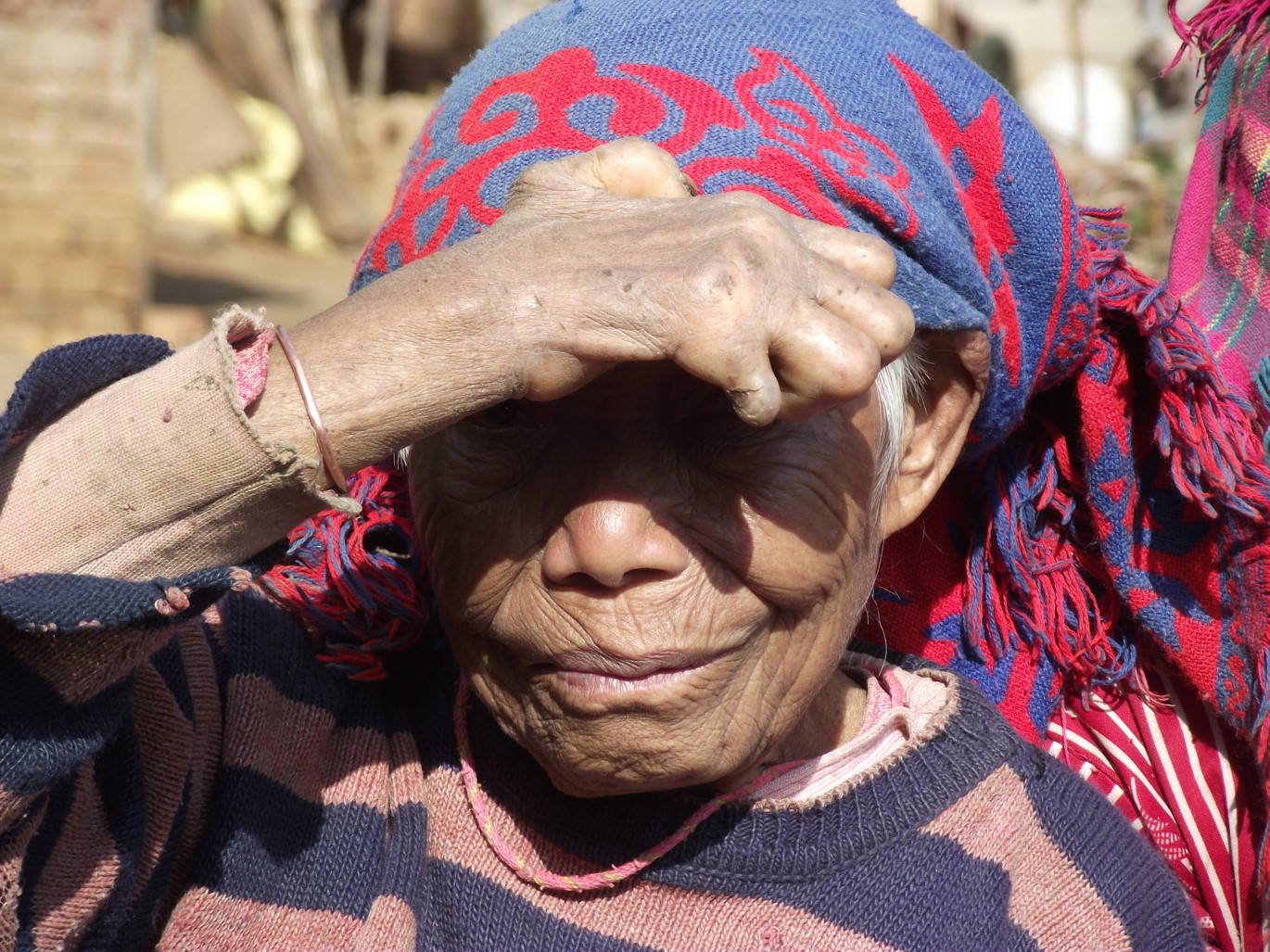In the early stages, the most common external symptom of leprosy is a change in skin colour, with light spots appearing on dark skin.

The pathogen first attacks the most delicate nerve endings: the sensory nerves close to the skin surface. This causes the patient to suddenly lose the ability to feel pain. If the patient is given medication at this early stage of infection, he or she can be cured without any permanent damage and without leaving any trace.
A later symptom of leprosy is that the fingers and toes become curled and stiff, and the patient's hand becomes like a bird's claw. The patient cannot use his hands or feet. They become unable to work.

The loss of the feeling of pain, an important and characteristic symptom of leprosy, means that the patient can reach into fire without feeling the burn, step on glass, nails, wire without feeling pain. While cooking, a woman can cut off her own finger because she feels no pain.
Nitu Kumari is about 14 years old. She is a young patient at Calcutta Hospital, sent from to the hospital from 700 km by a medical student. He was the first to recognize Nitu's illness. However by then, one of the girl's feet had already been mutilated and the damage was permanent.

Here and there, limbs are slowly atrophying, resulting in irreversible disability. The hands and feet hang numb and are exposed to further and further injuries during transport and work.

The infection attacks the nerves in the cooler parts of the body (face, hands and feet). On the face, the nose falls in, the eyelashes and eyebrows fall out. The symptoms of the disease cause almost irreparable damage.

The eye is damaged by the paralysis of the eyelid nerves, thus the patient cannot open and close the eyelid.
The disgusting image of leprosy patients - that they have no fingers, hands or feet - is a result of injuries due to nerve damage, but not a consequence of leprosy. This is why it is so important that patients are given medication as early as possible so that they do not become infected to the point of limb and facial damage, and that their environment does not see them as infectid and are not excluded because of it. Of course, even in the most severe cases, medicine will clear the infection from the body, but the truncation will remain!
ALL OF THIS COULD BE COMPLETELY AVOIDED IF THEY WOULD DARE AND KNOW HOW TO CONSULT A DOCTOR AT THE FIRST SIGN OF ILLNESS.




